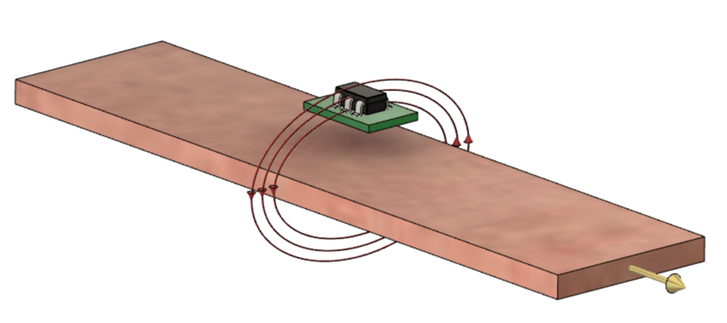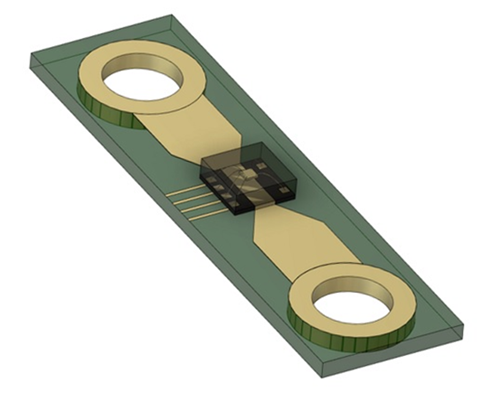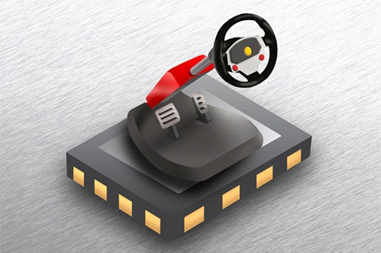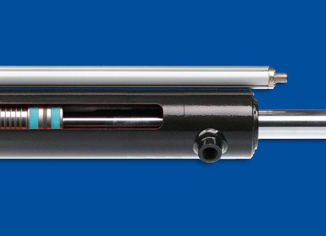
November is Magnetic Sensing Month at Magnetics Magazine!
Stay tuned and check the website frequently for new updates on the latest technology for magnetic sensing.
The Crocus family of tunnel magneto-resistance sensors continues to grow energetically with several new products introduced recently for current and angular sensing that are based on its XtremeSense technology. Shown above is its CT220 contactless current sensor which enables high isolation, high-resolution and high accuracy measurements for power monitoring applications without the need for magnetic concentrators or shields.
Sensitivity of the CT220 is extremely high, says Zack Deiri, CEO. “This enables customers to detect a wide range of currents safely and without sacrificing resolution at low currents. The CT220 is a zero-loss device enabling current monitoring at very low power for battery-powered applications such as drones and IoT devices.”
Coreless and contactless, it simply enables a multitude of applications including solar and power inverters, power supplies, battery management systems, white goods, industrial appliances, and power distribution units, said Deiry. “It is an ideal replacement for bulky current transformers, low sensitivity and low resolution Hall-based current sensors, and shunt-based applications where isolation and temperature stability are required.”

It joins the CT110 a TMR plug-and-play device for current monitoring applications requiring high linearity, high resolution, miniature form-factor, isolation and design simplicity which the company also introduced recently.
“The CT110 demonstrates the advancement Crocus has achieved in TMR magnetic sensing technology,” said Dieri. Using the company’s XtremeSense TMR 1D technology, it offers extremely low noise, high sensitivity, high linearity, low temperature drift, and virtually no hysteresis which renders existing sensing technologies obsolete. Due to its small form-factor and high resolution, it is suitable for applications such as smart plugs and IoT devices, appliances, drones, LED lighting, battery chargers, power tools, and PCs and servers. “The CT110 is ideal for any application which requires current monitoring including those currently utilizing shunt resistors combined with an isolation amplifier.”

For angular sensing, Crocus recently came out with its second generation XtremeSense TMR two-dimensional sensor for contactless, high accuracy angular position detection. The new CT310 is a successor product to the CT300 that was released in 2018.
It enables high performance with an ultra-low angular error and excellent stability over a wide magnetic, temperature and voltage ranges to address demanding market requirements. It consists of two full-bridge resistor networks that has an operating range of 25 mT to 90 mT. Over this range, it maintains an angular error of less than 0.25° with compensation over a wide temperature range of -40°C to +150°C. The CT310 could be used in end-of-shaft or side-of-shaft configurations with very high frequency response, and current consumption of less than 250 mA.
“It far exceeds competitors’ devices in terms of accuracy, resolution, power consumption, and reliability over temperature and large magnetic field exposure,” says Deiri. “The CT310’s high sensitivity (400mV/V) allows designers to utilize the device in their systems without the need for external components such as amplifiers which lowers overall solution cost. It is highly suitable for magnetic-encoder applications replacing outdated optical and mechanical technologies. The CT310 offers contactless angular sensing solutions for applications such as drones, motor control, robotics, white goods, and automotive.”
Headquartered in Santa Clara, CA, Crocus Technology develops and manufactures magnetic sensors based on its patented XtremeSense which it says brings disruptive advancements to IoT and smart devices, industrial, consumer, medical, and automotive electronics applications demanding high accuracy, high resolution, stable temperature performance, and low power consumption. See www.crocus-technology.com.



